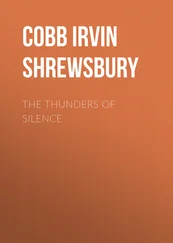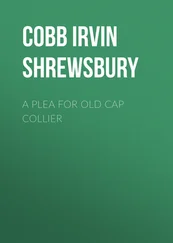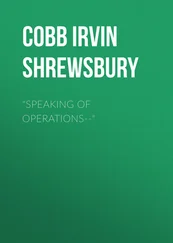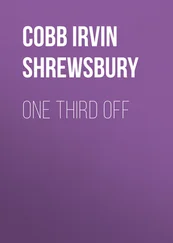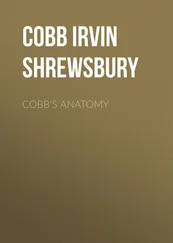Irvin Cobb - Local Color
Здесь есть возможность читать онлайн «Irvin Cobb - Local Color» — ознакомительный отрывок электронной книги совершенно бесплатно, а после прочтения отрывка купить полную версию. В некоторых случаях можно слушать аудио, скачать через торрент в формате fb2 и присутствует краткое содержание. Жанр: foreign_prose, на английском языке. Описание произведения, (предисловие) а так же отзывы посетителей доступны на портале библиотеки ЛибКат.
- Название:Local Color
- Автор:
- Жанр:
- Год:неизвестен
- ISBN:нет данных
- Рейтинг книги:5 / 5. Голосов: 1
-
Избранное:Добавить в избранное
- Отзывы:
-
Ваша оценка:
- 100
- 1
- 2
- 3
- 4
- 5
Local Color: краткое содержание, описание и аннотация
Предлагаем к чтению аннотацию, описание, краткое содержание или предисловие (зависит от того, что написал сам автор книги «Local Color»). Если вы не нашли необходимую информацию о книге — напишите в комментариях, мы постараемся отыскать её.
Local Color — читать онлайн ознакомительный отрывок
Ниже представлен текст книги, разбитый по страницам. Система сохранения места последней прочитанной страницы, позволяет с удобством читать онлайн бесплатно книгу «Local Color», без необходимости каждый раз заново искать на чём Вы остановились. Поставьте закладку, и сможете в любой момент перейти на страницу, на которой закончили чтение.
Интервал:
Закладка:
Thus fortified with ready money Looms would go away to some quiet place in the country and write the book. Mulling these details over in his head he shambled along automatically until suddenly he found himself standing in Forty-second Street. He slipped backward involuntarily, for the crowds that swirled by him daunted him. It seemed to him that they were ten times as thick, ten times as noisy, ten times as hurried as they had been when last he paused in that locality.
For a minute, irresolute, he hesitated in the shelter of the station doorway. Then, guided by habit, a thing which often sleeps but rarely dies, he headed westward. He walked as close to the building line as he could squeeze himself, so as to be out of the main channels of sidewalk travel. When he came to Fifth Avenue he mechanically turned north, shrinking aside from contact with the swarms of well-dressed, quick-paced men and women who passed him, bound in the opposite direction. From the asphalt beyond the curbing arose a clamour of wheels and hoofs and feet which dinned unpleasantly in his ears, creating a subconscious sense of irritation.
He moved along, dragging his feet, for two blocks; then halted on a corner. A big building rose before him, a building with many open windows. There were awnings and flower boxes at the windows; and, looking in at the window nearest him, he caught sight of well-dressed men and women sitting at tables. With almost a physical jolt he realised that this was a restaurant in which he himself had dined many a time on such an evening as this; somehow, though, those times seemed centuries back of him in a confused previous existence.
A uniformed carriage starter, who stood at one of the entrances, began staring at him and he went on up the avenue with his hands rammed deep into his pockets, his head bent between his shoulders, and his heels dragging on the sidewalk. He had a feeling that everybody was staring at him. It nagged and pestered him – this did.
He continued his way for four or five blocks, or possibly six, for he took no close note of his progress. Really he had no purpose in this northward progress; a restlessness he could not analyse kept him moving. He came to another building, also with awninged windows. He knew it for a club. Once or twice, he recalled, he had been in that club as a guest of a member, but for the moment he could not think of its name. Sitting at a window facing him were two men and in a spurt of reviving memory he placed one of them as a man he had known slightly – a man named Walcroft, a corporation lawyer with offices downtown.
This man Walcroft stared straight into Looms’ face, but in his eyes there was no glint of recognition; only on his face was a half-amused, half-contemptuous expression as though he wondered why a person of so dubious an appearance should be loitering along Fifth Avenue at such an hour.
Looms, squinting back at Walcroft through his glasses, felt a poke in the small of the back. He swung round; a policeman approaching from the rear had touched him with a gloved thumb. The look the policeman gave him as they faced each other was at once appraising, disapproving and suspicious.
“Move on!” he said briskly. “Keep movin’!”
“I’m doing nothing,” said Looms slowly; but as he spoke he backed away a pace or two and his eyes flickered and shifted uneasily, avoiding the policeman’s direct and accusing stare.
“That’s the trouble,” said the policeman. “You’re doin’ nothing now, but you’re likely to do something if you stay here. Beat it! You’re in the wrong street!” With an air of finality the policeman turned away.
Irresolutely the ex-convict retreated a few yards more, stepping out into the roadway. Was he indeed in the wrong street? Was that why he felt so uncomfortable? Yes, that must be it – he was in the wrong street! Fifth Avenue was not for him any more, even though once he had lived on Fifth Avenue.
As he shambled across to the opposite sidewalk he shoved his hand up under his hat, which was too large for him, and scratched his head in a new perplexity. And then to him, in a flash, came a solution of the situation, and with it came inspiration and purpose. It was precisely in that brief moment that Felix Looms, the well-known writer, died, he having been killed instantaneously by the very thing after which he had lusted.
The man who had been Felix Looms – Felix Looms, who was now dead – headed eastward through a cross street. He hurried along, moving now with decision and with more speed than he had shown in his loitering course from the station. In turn he crossed Madison Avenue and Park Avenue and Lexington Avenue, so that soon the district of big restaurants and clubs and churches and hotels and apartment houses lay behind him and he had arrived in a less pretentious and more crowded quarter. He reached Third Avenue, with its small shops and its tenements, and the L structure running down the middle of it; he crossed it and kept on.
Midway of the next block he came to a place where a building was in course of construction. The ground floor was open to the street, for the façade, which was to be a shop front, had not gone up yet. The slouching pedestrian stopped and looked in searchingly. He saw scattered about over a temporary flooring, which was laid roughly on the basement rafters, a clutter of materials and supplies. He saw a line of gas pipes and water pipes, which protruded their ends from beneath a pile of sheathing, looking rather like the muzzles of a battery of gun barrels of varied bores.
At sight of this piping the eyes of the passer-by narrowed earnestly. Over his shoulders, this way and that, he glanced. There was no watchman in sight. The workmen – all good union men, doubtless – had knocked off for the day; but it was not yet dark and probably the night watchman had not come on duty.
He looked again, and then he stepped inside the building.
In a minute or so he was out. He had one arm pressed closely against his side as though to maintain the position of something he carried hidden beneath his coat. Head down, he walked eastward. Between Third Avenue and Second he found the place for which he sought – a small paved passageway separating two tenements, its street end being stopped with a wooden door-gate which swung unlocked. He entered the alley, slipping into the space just behind the protecting shield of the gate.
When he emerged from here the brick paving of the passage where he had tarried was covered with tough paper, torn to ragged fragments. There was a great mess of these paper scraps on the bricks. A small leather envelope, worn slick by much handling, gaped emptily where it had been dropped in an angle of the wall behind the door. The man responsible for this litter continued on his way. His left arm was still held tight against his side, holding upright a fourteen-inch length of gas pipe the man had pilfered from the unfinished building a block away.
About the gas pipe was wrapped a roll of sheets of thin paper, pasted together end to end and closely covered with minute characters done in indelible, purplish-blue shorthand ciphers. The sheets, forming as they did a continuous strip, spiralled about the gas pipe snugly, protecting and hiding the entire length of the heavy metal tube.
This was about six o’clock. About nine o’clock Marcus Fishman, a Roumanian tailor, going to his home in Avenue A from a sweatshop in Second Avenue, was stalked by a footpad at a dark spot in East Fifty-first Street, not far from the river, and was knocked senseless by a blow on the head and robbed of eleven dollars and sixty cents.
A boy saw the robbery committed and he followed after the disappearing robber, setting up a shrill outcry that speedily brought other pursuers. One of these stopped long enough to pick up a paper-covered gas pipe the fugitive had cast aside.
Читать дальшеИнтервал:
Закладка:
Похожие книги на «Local Color»
Представляем Вашему вниманию похожие книги на «Local Color» списком для выбора. Мы отобрали схожую по названию и смыслу литературу в надежде предоставить читателям больше вариантов отыскать новые, интересные, ещё непрочитанные произведения.
Обсуждение, отзывы о книге «Local Color» и просто собственные мнения читателей. Оставьте ваши комментарии, напишите, что Вы думаете о произведении, его смысле или главных героях. Укажите что конкретно понравилось, а что нет, и почему Вы так считаете.



